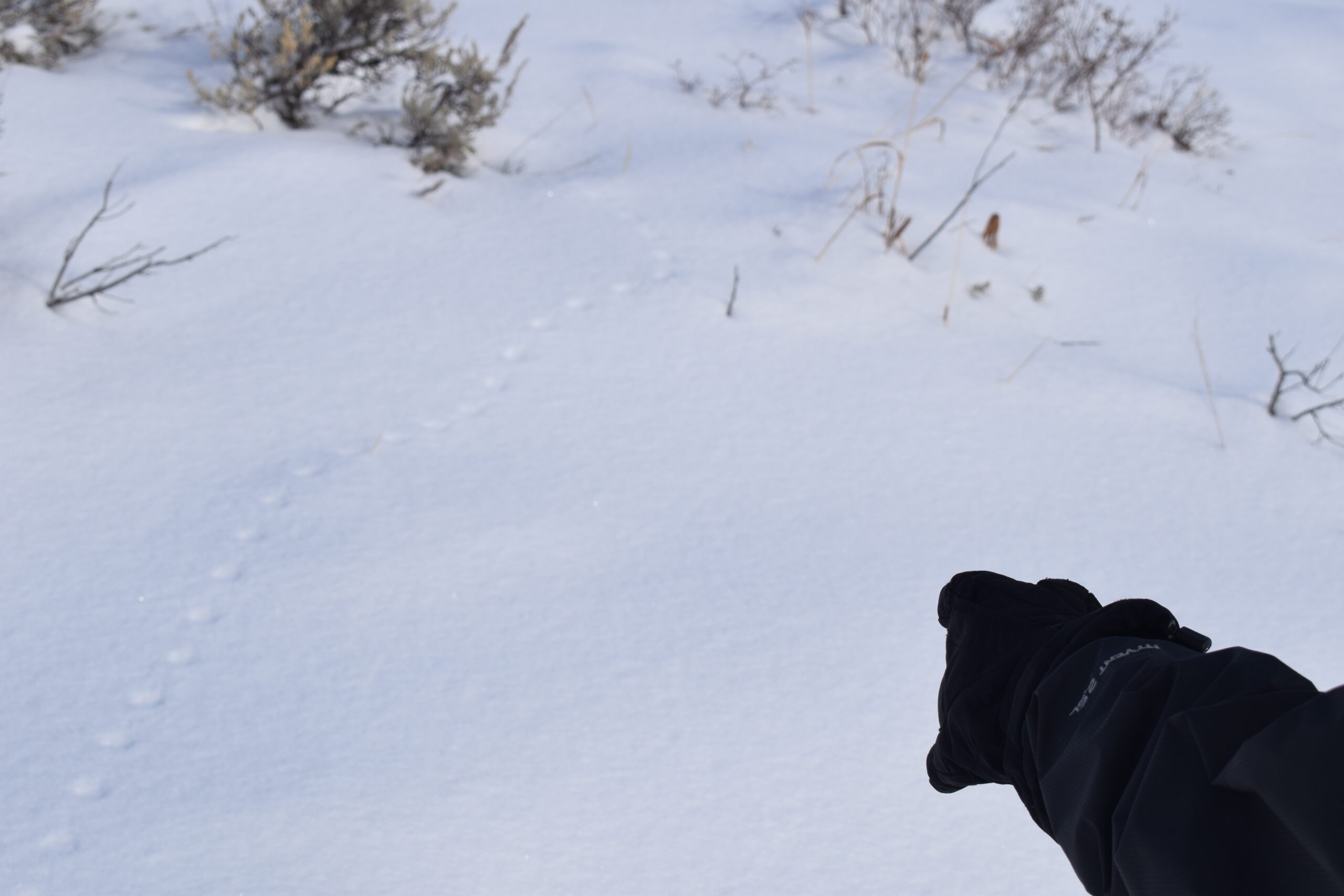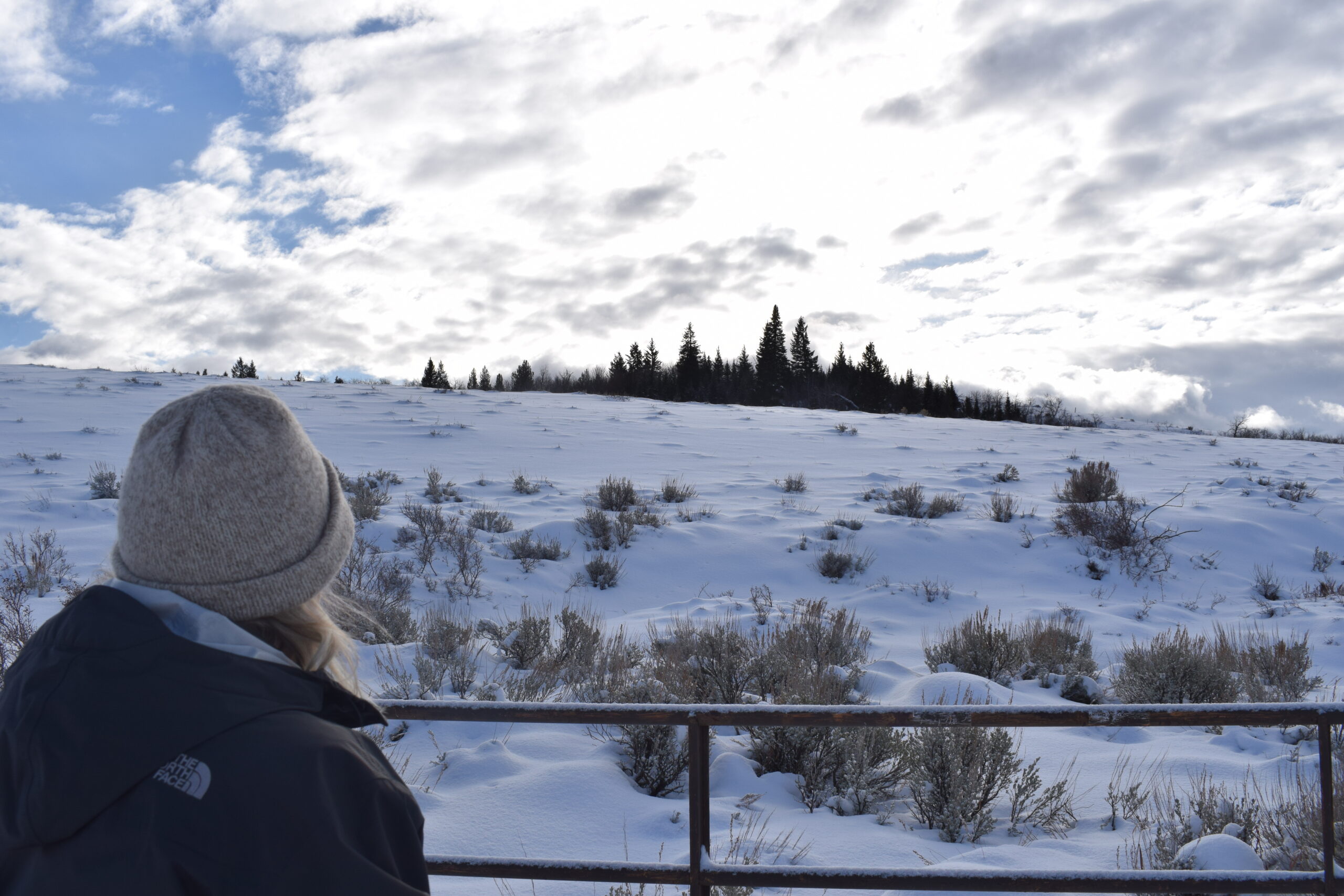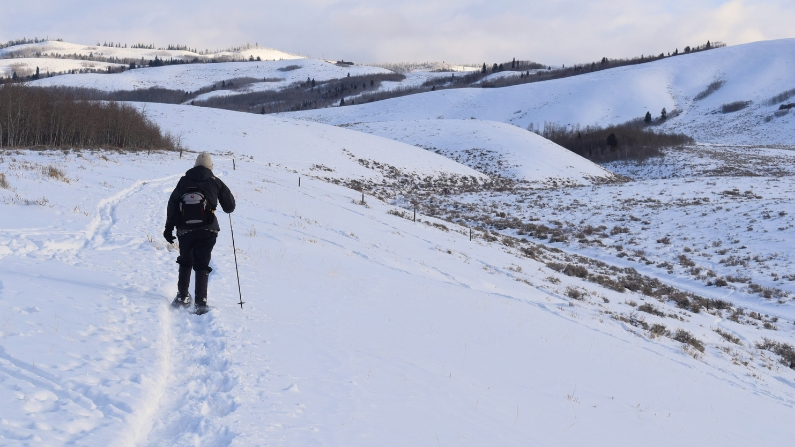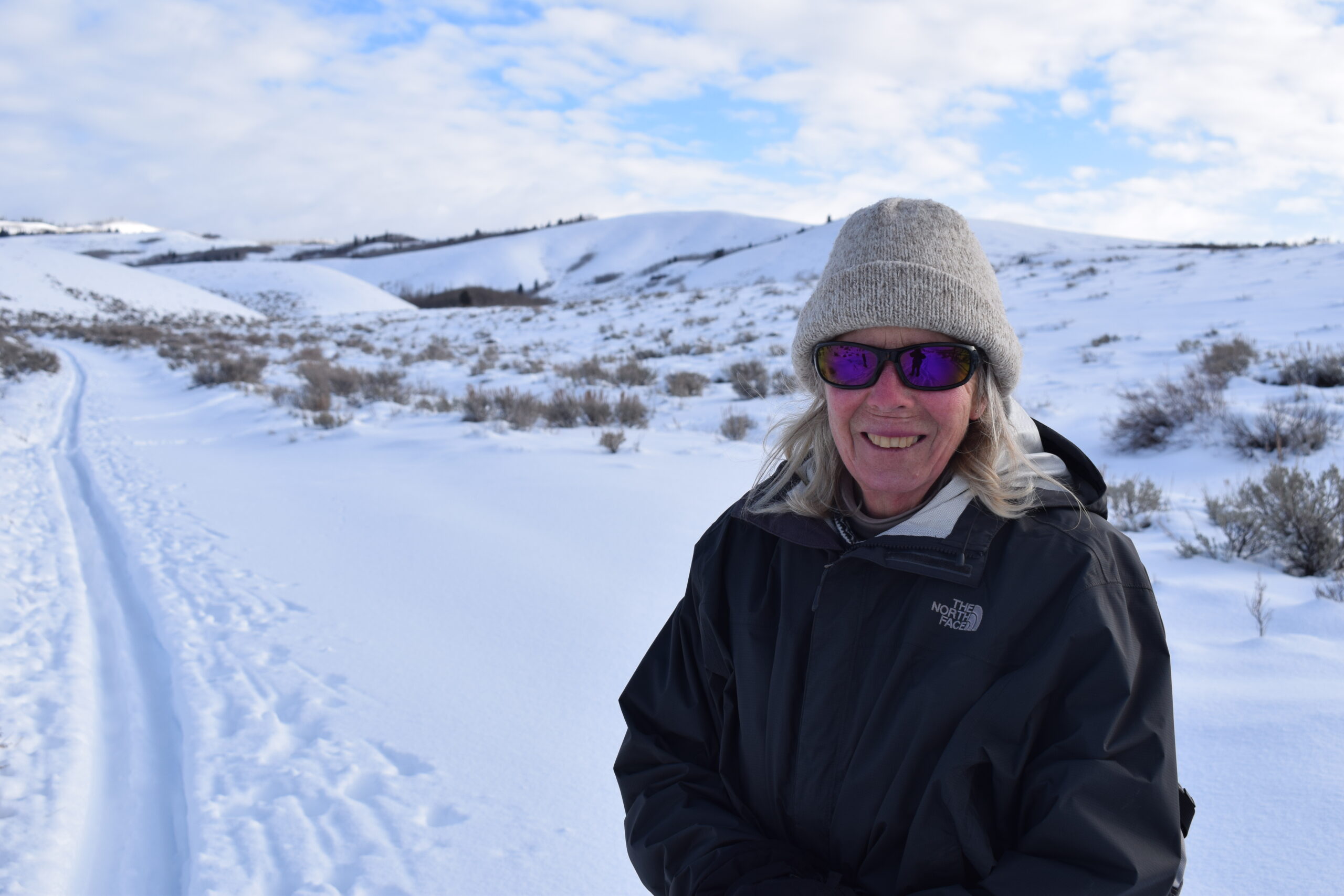Take a deep-dive into Jackson Hole. Subscribe to Jackson Unpacked, available wherever you get your podcasts.
Susan Marsh doesn’t plan her days. The 71-year-old wakes up and does what feels right.
And what feels right many mornings is hopping in her baby blue Subaru Forester with bumper stickers urging others to slow down for wildlife and protect public lands. She drives about 30 minutes from her home in Jackson into Grand Teton National Park, down the Gros Ventre River and onto a square mile of smooth hills and rounded gullies across the Snake River from the jagged Tetons: the Kelly Parcel.
The critical wildlife habitat for a variety of species — from voles and grouse to elk and bison — is now permanently protected. Grand Teton National Park bought the Kelly Parcel from the state of Wyoming for $100 million just before the ball dropped on the New Year. It’s the culmination of decades of tense negotiation and political positioning that ramped up in the past year as state electeds ironed out a deal most felt was fair.
At one point, the state’s land managers recommended auctioning the parcel to the highest bidder. That would’ve maximized the money made off the land for the state’s public schools but could have opened it up to private development. An open auction was met with scrutiny from thousands around the state, country and world.
And if the final sale had not closed before the start of the 2025 legislative session, the hard-right Freedom Caucus, which now holds a majority of the House between its members and allies, could have overturned the deal. Some Freedom Caucus members have said they want more from the feds to further oil and gas development in the southwest part of the state, helping the state’s economy and schools.
But now that the parcel is part of the park, Marsh isn’t worried about losing trail access for snowshoes and skis. It’s less clear if other uses, like biking, will still be allowed under new federal ownership.
“I ski here, I hike, I look for wildflowers in the spring and it’s gorgeous any time of year,” Marsh said. “I think we need to come up with a better name for it, frankly. It’s not a parcel. It’s a little Shangri-La.”
The writer, naturalist and former decades-long U.S. Forest Service employee stops to listen to coyotes, points to the tracks of buffalo and carefully skirts imprinted elk beds in the snow.
The land and wildlife is a muse for her writing and holds sentimental value after the passing of her husband, Don Plumley, in 2021.
“It was a place I went to just a couple of months after my husband died, and it just made me feel better about everything,” Marsh said. “It was a kind of a sacred place to me in that way.”

Susan Marsh points to vole tracks just outside the boundary of the Kelly Parcel. (Dante Filpula Ankney / KHOL)
Chip Jenkins, superintendent of Grand Teton National Park, said only now, after the sale, can the park start to consider specific uses.
“Our top priority is going to be having it managed as a place that is preserved for wildlife,” Jenkins said.
The park will set specifics in the coming months, likely to resemble other areas of the park. Hunting and grazing leases are the only guarantees set by the state in the sale agreement. These are activities Jenkins said have been allowed in areas since the park’s creation, but are subject to change.
The seemingly big environmental win — increasing the national park’s acreage — is also indirectly linked to oil and gas production.
The Kelly Parcel sold way above market price. Lawmakers set the $100 million price tag.
The federal government paid about $62 million, the land’s appraised value, and the remaining $38 million was fundraised in about a year by the Grand Teton National Park Foundation. That money now sits in a fund for state public schools.
Gov. Mark Gordon has indicated the state may spend even more — up to $162 million — to buy energy-rich land in Wyoming’s northeast and the southwest.
“We’re going to go about it in a very deliberate and conscientious way, and it is not to remove them from public access,” Gordon said at a January press conference.
It’s a real possibility if the correct steps are taken and the feds are on board.
A spokesperson for the Bureau of Land Management (BLM) said that if specific land is identified, then the BLM would consider selling, per the formal process. That process, once initiated, will likely take several years and involve gathering public input.
But that legacy — migration paths in exchange for more oil and gas leases — leaves some environmentalists uneasy.
Jared Baecker manages Wyoming conservation for the Greater Yellowstone Coalition, an environmental advocacy group. He said the group spurred supporters to send over 800 letters of public comment to the state board of land commissioners in the final hours before the final sale, urging their approval.
“I don’t know if it tarnishes the deal,” Baecker said. “Wyoming is a state that has a significant share of its economy based upon extractive energy. And if the people of Wyoming believe that that is the right path in the future, I think that option should be considered. Is it my preferred option to see where these dollars go? Probably not.”

Just inside the Kelly Parcel boundary, Susan Marsh peers out toward a snow-swept landscape. (Dante Filpula Ankney / KHOL)
Back at the Kelly Parcel, following a brief pause in her trek to listen to coyotes, Susan Marsh is similarly unsure.
“I don’t like to sacrifice one place for the benefit of some other place,” Marsh said.






